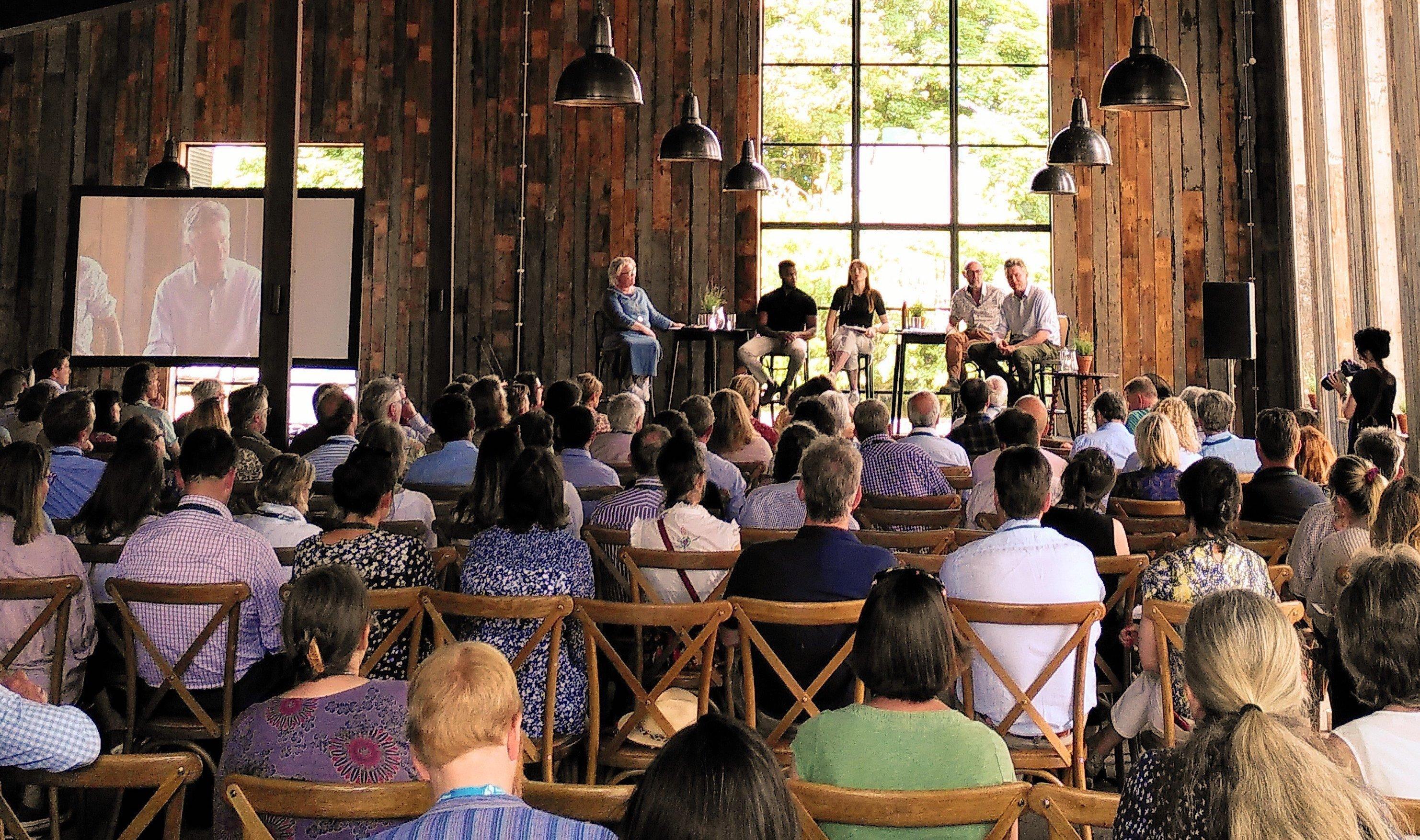

We are part of a dynamic ecosystem of organisations working together in shared mission and purpose.
We measure our impact in a wide variety of ways. Read more about how we amplify voices to shape narratives, work with leaders inside and outside governments to shape policy, and curate evidence that helps bring people together and build movements for change.
AN EXAMPLE:
The Food Conversation was designed to provide evidence of a growing movement to change the food system. Through a gold standard engagement process, we hosted deliberative conversations to uncover what citizens really wanted from food. The project was designed to engage politicians throughout. They joined our deliberations, attended events and meetings, and cited our findings in parliamentary debate across all four nations.
Impact: Our evidence, alongside years of work by others, contributed to a significant shift towards government intervention on food. We are now seeing new policy announcements from governments, new food strategies in England and Northern Ireland, and a growing momentum around food in all four nations. Citizens from the Food Conversation have been invited by the UK government to contribute as part of a Citizens Advisory Council to the new Food Strategy - an important endorsement of the quality of FFCC's work and an exciting step forward in terms of citizen engagement in policy development.
“a properly powerful demonstration of good public engagement … that government departments could and should be doing for themselves.”
Jon Alexander, author of ‘Citizens









AN EXAMPLE:
Much celebrated when launched in 2020, Farming for Change continues to influence thinking in the sector including in key reports like the National Food Strategy.
Impact: Generating significant interest (in national and specialist media, online and within academic circles), at the time of publication, the report influenced multiple further reports (including by WWF and SFT), and continues to be critical evidence for the agroecological transition. The impact of the report has enabled FFCC to continue its work to align leaders and influence policy discussions.
"#FarmingforChange injects valuable data into the debate” Prof Tim Lang

AN EXAMPLE:
We first suggested the idea of a Land Use Framework in Our Future in the Land. Since, we have built a broad alliance around the concept of a multifunctional, land-led, transparent and inclusive Land Use Framework, and tested the mechanisms to make it work.
Impact: This work influenced the House of Lords report, the Royal Society’s Living Landscape report, the Glover Review and the Geospatial Commission’s report - all of which were instrumental in building momentum. Our pilot projects in Devon and Cambridgeshire have helped central and local government decision makers to understand how a Land Use Framework could work in practice. We have also convened leaders across all four nations of the UK to share learning and build alliances.
"The best example of a Land Use Framework has been created by the Food, Farming and Countryside Commission.” Henry Dimbleby




